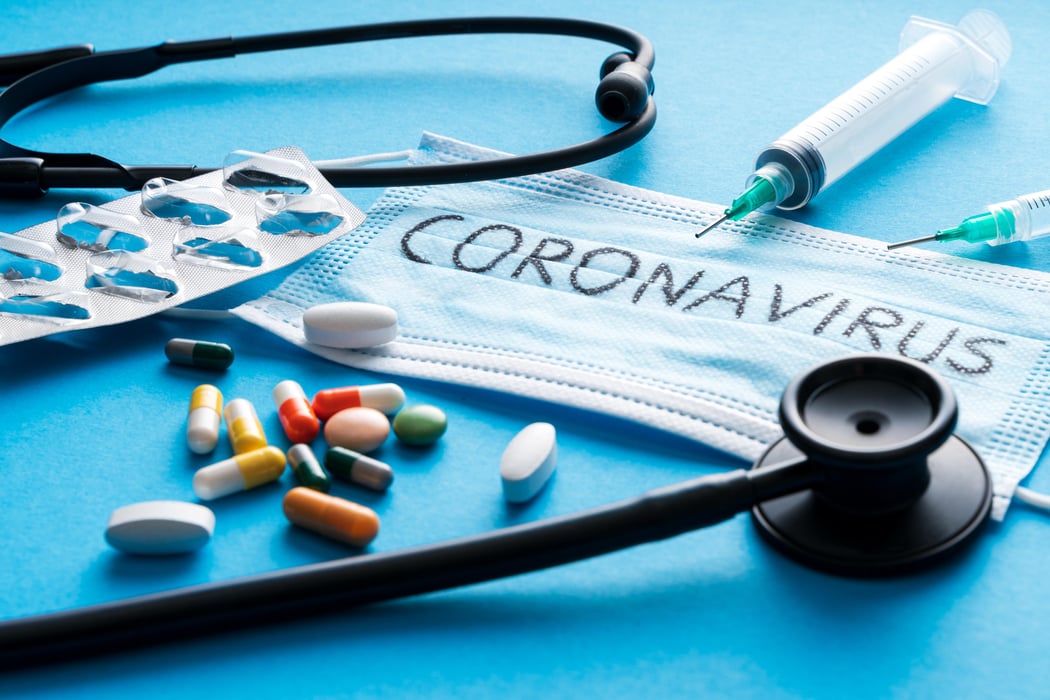Ivermectin, Luvox Fail as COVID-19 Treatment

THURSDAY, Aug. 18, 2022 (HealthDay News) -- Two drugs touted as potential COVID-19 treatments, ivermectin and fluvoxamine, don't do a thing to improve patients' oxygen levels and keep them out of the hospital or the morgue, a new clinical trial has shown.
Neither of the two repurposed drugs proved effective against COVID among overweight or obese patients who received them within seven days of symptom onset, according to results published Aug. 18 in the New England Journal of Medicine.
A third drug, metformin, did not meet the primary objective of improving oxygen levels, but it did slightly lower the odds that a patient would develop severe COVID, said lead researcher Dr. Carolyn Bramante, an assistant professor of internal medicine and pediatrics at the University of Minnesota Medical School.
"Metformin did lower the odds of emergency department visits, hospitalization or death by more than 40%, more than 50% if prescribed early," Bramante said. "However, this is a secondary outcome, so it cannot be considered definitive."
Ivermectin, fluvoxamine (Luvox) and metformin are all approved by the U.S. Food and Drug Administration for other purposes, and early in the pandemic all were floated as possible treatments for COVID.
Ivermectin, a dewormer, was promoted in particular by some as an alternative treatment for COVID. Fluvoxamine is an antidepressant, and metformin is a diabetes medication.
The failure of the three drugs to meet the clinical trial's primary objective is "not surprising, because antiviral therapy is something that is usually highly specific and targeted," said Dr. Amesh Adalja, a senior scholar with the Johns Hopkins Center for Health Security in Baltimore. Specific drugs usually have to be newly developed to treat specific viruses.
In this clinical trial, more than 1,300 COVID patients were randomly selected to be treated with one of the three drugs individually, a placebo pill, or a combination of metformin and fluvoxamine or metformin and ivermectin.
Participants had to be overweight or obese, which is one of the known risk factors for severe COVID. A little more than half had been vaccinated.
None of the three drugs helped patients' blood oxygen levels remain normal. But metformin did help lower the risk of severe COVID and death.
Metformin has been around for a hundred years, and in the 1940s was used as an antiviral medication, Bramante said. More recent lab studies have indicated that metformin can act against SARS-CoV-2, the COVID virus, when the two meet in a test tube.
"Probably the medication that was least talked about for early treatment of COVID-19 was metformin, but in a way metformin actually has the most sort of stepwise methodological data that led us to believe that it would be effective against SARS-CoV-2," Bramante said.
Infectious disease expert Dr. William Schaffner said this clinical trial should close the door on the idea that ivermectin or fluvoxamine can help treat COVID.
"Early on, on the basis of semi-anecdotal information, there were thoughts that these drugs might work," said Schaffner, medical director of the Bethesda, Md.-based National Foundation for Infectious Diseases.
"It's clear that as more rigorous, larger and better-structured studies came along, that was denied," he said. "And this last study really supports the notion that these drugs ought not to be used, because they've been now shown to be ineffective in repeated studies."
It might be worth continuing to study metformin's effectiveness against COVID "very carefully," Schaffner said.
But, he added, there's less need to search for such repurposed drugs now, given that the Omicron strain of COVID causes less severe illness.
In addition, there are now COVID treatments available that have been proven to work, Adalja noted.
“At this stage of the pandemic, the fact that drugs like Paxlovid and monoclonal antibodies are available should preclude the use of any repurposed drugs that have not shown benefit," Adalja said.
More information
The U.S. Centers for Disease Control and Prevention has more about COVID treatments.
SOURCES: Carolyn Bramante, MD, MPH, assistant professor, internal medicine and pediatrics, University of Minnesota Medical School, Minneapolis; William Schaffner, MD, medical director, National Foundation for Infectious Diseases, Bethesda, Md.; Amesh Adalja, MD, senior scholar, Johns Hopkins Center for Health Security, Baltimore; New England Journal of Medicine, Aug. 18, 2022
Was this page helpful?
Related Posts
Authoritative Parenting: What It Is, Techniques & Discipline
TUESDAY, May 30, 2023 (HealthDay News) -- Children’s personalities and moods can...
Los juegos de mesa podrían ser beneficiosos para las habilidades matemáticas de los niños
LUNES, 10 de julio de 2023 (HealthDay News) -- La noche de juegos en familia...
Teen Patients Have Positive Long-Term Outcomes After Bariatric Surgery
TUESDAY, Oct. 11, 2022 (HealthDay News) -- Significant and sustained reductions...
Hay restos de ADN humano por todas partes en el ambiente
LUNES, 15 de mayo de 2023 (HealthDay News) -- Unos restos detallados de ADN...
